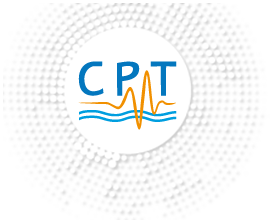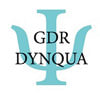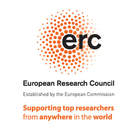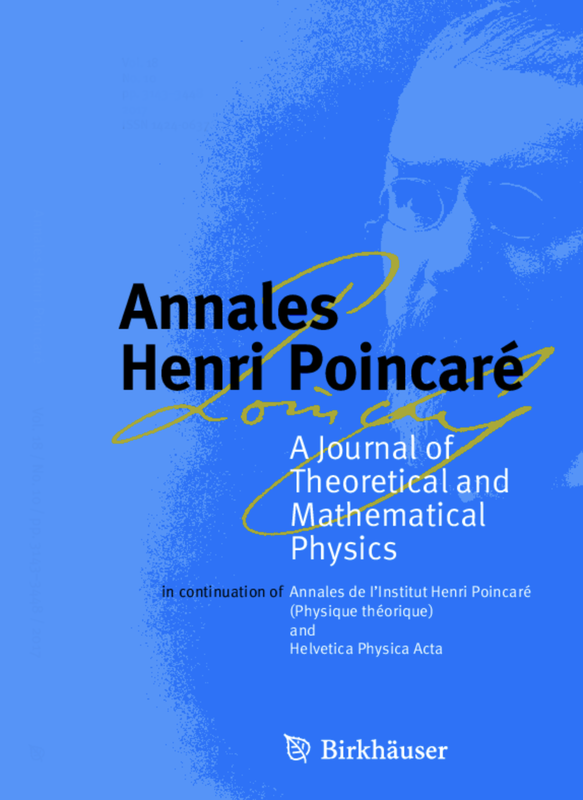The Analysis of Complex Quantum Systems: Large Coulomb Systems and Related Matters
Analyse des systèmes complexes: grands systèmes coulombiens et systèmes apparentés
21 – 25 October 2019
|
Scientific Committee
Comité scientifique Rafael Benguria (Catholic University of Chile) |
Organizing Committee
Comité d’organisation Jean-Marie Barbaroux (CPT Marseille & Université de Toulon) |
|
Description
|
|
This workshop will focus on mathematical-physics questions in the context of Coulomb systems. This includes identifying the relevant one-particle equations as limits of the underlying microscopic highdimensional dynamics as well as the analysis of the limiting equations with singular potentials. Other examples are the dynamic description of ionization, the derivation of effective graphene models, and limiting theorems for time-dependent relativistic Coulomb systems. This includes the following topics
|
La thématique du colloque concerne les questions de physique-mathématique dans le contexte des systèmes coulombiens. Cela inclut la détermination des équations à une particule pertinentes pour décrire, dans la limite de certains paramètres, la dynamique des systèmes microscopiques à grand nombre de particules ainsi que l’analyse des équations limites avec potentiels singuliers. Cela comprend aussi la description dynamique de la ionisation, la dérivation des modèles de graphène, et les théorèmes limites pour les systèmes de Coulomb relativistes dépendant du temps. Une liste non exhaustive de sujets abordés est
L’un des rôles essentiels de cette rencontre est de rapprocher les scientifiques qui travaillent sur les aspects mathématiques de la mécanique quantique, et en particulier les grands systèmes coulombiens, et qui sont motivés par une compréhension avancée de la physique quantique et intéressés par de nouvelles approches et le développement de nouvelles méthodes mathématiques adaptées aux problèmes étudiés. Au delà de l’intérêt d’obtenir un panorama représentatif des avancées scientifiques dans les domaines les plus attractifs du moment en physique-mathématique des systèmes coulombiens, le but de cette rencontre internationale est d’avoir un nombre important de jeunes chercheuses et chercheurs présents. Les séjours au CIRM sont l’occasion pour les chercheurs seniors de rencontrer et de prendre le temps de discuter avec la jeune génération de chercheurs. Cela a toujours été une grande source de motivation pour tous pour démarrer des projets de recherche et renforcer les collaborations scientifiques. |
Ioannis Anapolitanos (Karlsruhe Institute of Technology) Long range behavior of the van der Waals forces between a molecule and a metallic plate
Rafael Benguria (Catholic University of Chile)
Hanne van den Bosch (The University of Chile) A critical Poincaré-Sobolev inequality
Sébastien Breteaux (Institut Elie Cartan de Lorraine) Quantum Mean Field Asymptotics and Multiscale Analysis
Serena Cenatiempo (Gran Sasso Science Insitute) The excitation spectrum of the Bose gas in the Gross-Pitaevskii regime
Li Chen (University of Mannheim) Combined mean field and semiclassical limits large fermionic system
Horia Cornean (Aalborg University) Peierls’ substitution for low lying spectral energy windows
Laurent Desvillettes (IMJ-PRG Paris) Equilibria for collision kernels appearing in weak turbulence
Jérémy Faupin (Université de Lorraine) Dissipative quantum systems: scattering theory and spectral singularities
François Golse (CMLS, Ecole polytechnique) Partial Regularity in Time for the Landau Equation with Coulomb Interaction Potential
Christian Hainzl (University of Tübingen / LMU Munich) On the correlation energy of a high density Fermi gas
Bernard Helffer (Université de Nantes) Non-boundedness of the number of nodal domains of a sum of eigenfunctions
Dirk Hundertmark (Karlsruhe Institute of Technology)
Mathieu Lewin (CEREMADE, Université Paris Dauphine) Classical Jellium, the Uniform Electron Gas and a new bound on the Lieb-Oxford inequality
Francis Nier (Université Paris 13) Microlocal approaches to bosonic QFT, comparative presentation of recent developments
Thành Nam Phan (LMU Munich) The Lieb-Thirring inequality for scale-covariant many-body quantum systems
Peter Pickl (LMU Munich) Holes in the Fermi sea
Marcello Porta (University of Zurich) Lower bound on the correlation energy for Fermi gases in the mean-field regime
Gerhard Rein (University of Bayreuth) Can highly relativistic, self-gravitating matter distributions be stable?
Simona Rota Nodari (Université de Bourgogne) . The relativistic semi-classical equation for a nucleon and its non- relativistic limit
Chiara Saffirio (University of Zurich) From the many-body quantum dynamics to the Vlasov equation
Benjamin Schlein (University of Zurich) Upper bound on the correlation energy of a Fermi gas in the mean field regime
Robert Seiringer (IST Austria) The Local Density Approximation in Density Functional Theory
Sylvia Serfaty (Laboratoire JLL, Sorbonne Université) Microscopic description of Coulomb gases
Edgardo Stockmeyer (Catholic University of Chile) On the semiclassical spectrum of the Dirichlet-Pauli operator













